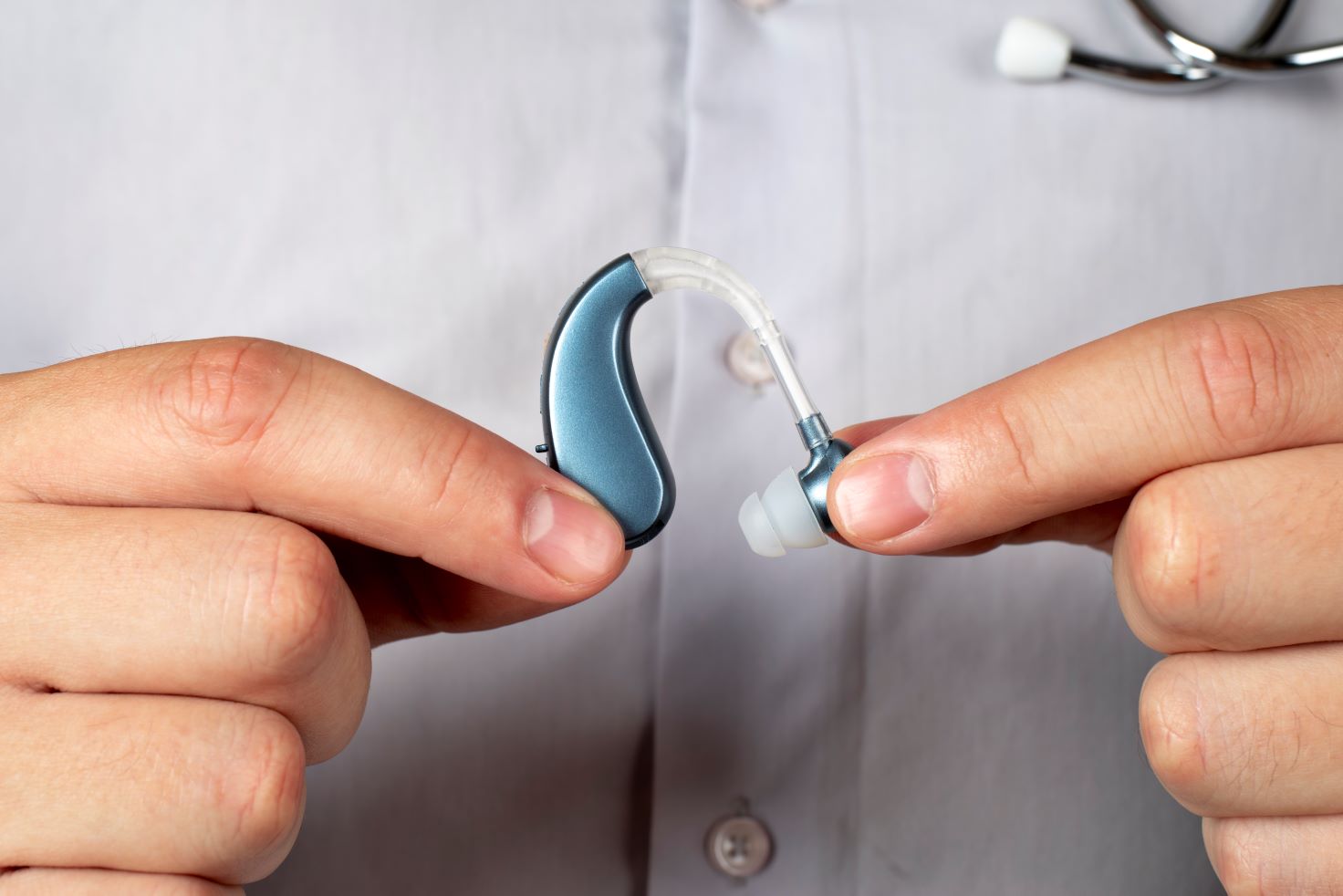Over-the-counter (OTC) hearing aids are becoming increasingly popular for individuals with mild to moderate hearing loss. Many people wonder whether they need one or two OTC hearing aids for their unique hearing needs. This decision depends on various factors, including the severity of hearing loss, cost, and desired benefits. In this post, we’ll discuss how to choose between one or two OTC hearing aids.
What Are OTC Hearing Aids?
OTC hearing aids are devices available for purchase directly from stores or online without the need for a prescription. They are designed to help individuals with mild to moderate hearing loss. OTC hearing aids are more affordable than traditional ones, which require a prescription and professional fitting. OTC hearing aids are a convenient and budget-friendly option for many people.
The FDA has recently approved OTC hearing aids, making them more accessible for those who need hearing assistance. However, they are not suitable for severe hearing loss but are effective for mild hearing difficulties.
Monaural vs. Binaural Hearing Aids
Deciding between one or two OTC hearing aids requires understanding the differences between monaural and binaural options:
- Monaural Hearing Aids (One Hearing Aid): Monaural hearing aids are designed for individuals with hearing loss in only one ear. This type of hearing aid amplifies sounds in the affected ear, providing relief for people who may not have hearing loss in both ears. If you have unilateral hearing loss (hearing loss in one ear), a monaural hearing aid can restore hearing in that ear.
However, using only one hearing aid may limit your ability to localize sounds. Sound localization is the ability to identify the direction from which a sound is coming. With one hearing aid, it’s harder to determine if a sound is coming from the left or right. Additionally, people with a hearing loss in only one ear may still experience difficulty hearing clearly in noisy environments.
- Binaural Hearing Aids (Two Hearing Aids): Binaural hearing aids, on the other hand, are ideal for individuals with hearing loss in both ears. These hearing aids help improve sound quality, enhance speech understanding, and provide better sound balance. Using two hearing aids allows the brain to process sounds more naturally, offering a more immersive listening experience.
Two hearing aids improve the ability to localize sounds. When both ears are hearing clearly, it’s easier to pinpoint where a sound is coming from. Additionally, binaural hearing aids offer better noise reduction and reduce the effects of background noise. This makes them ideal for individuals in noisy environments or those struggling to understand speech in crowded settings.
Which Option Is Right for You?
When deciding, it’s important to assess your hearing needs. If you have hearing loss in both ears, binaural hearing aids are likely the better option. Two hearing aids provide more balanced hearing and offer enhanced benefits. They help improve sound clarity and speech recognition, allowing you to hear better in various situations.
For individuals with hearing loss in only one ear, starting with a monaural hearing aid may be sufficient. It can help amplify sound in the affected ear and may meet your hearing needs. If a single hearing aid lacks clarity, upgrading to binaural hearing aids can provide additional benefits.

Consulting a Professional
Although OTC hearing aids don’t require a prescription, consulting a hearing healthcare professional can still be helpful.A professional can evaluate your hearing loss and provide guidance on which type of hearing aid is best for you. They can also help you understand the features available in different OTC hearing aids, ensuring you choose the right device for your needs.
Benefits of OTC Hearing Aids
OTC hearing aids provide several benefits, including:
- Affordability: OTC hearing aids are more cost-effective than prescription hearing aids, making them accessible for more people.
- Convenience: You can purchase OTC hearing aids directly online or in stores without waiting for a prescription or fitting.
- Customization: Many OTC hearing aids offer adjustable settings, allowing you to personalize the device to your hearing needs.
- Self-Fitting: OTC hearing aids can often be self-programmed, which means you can adjust them at home without visiting a professional.
Conclusion
The choice between one or two OTC hearing aids ultimately depends on your specific hearing needs. Binaural hearing aids improve sound quality, speech clarity, and noise reduction for individuals with hearing loss in both ears. For one-sided hearing loss, a monaural hearing aid may suffice, but consider two for better sound and clarity.
OTC hearing aids are a great option for mild to moderate hearing loss, offering a cost-effective and convenient solution. Consider your unique needs and consult a hearing professional if necessary to find the best OTC hearing aid.










